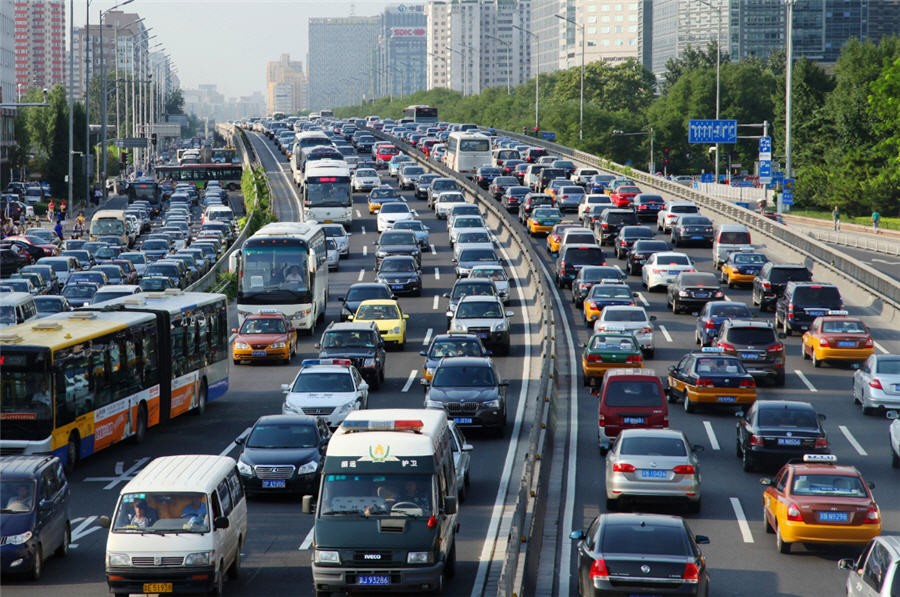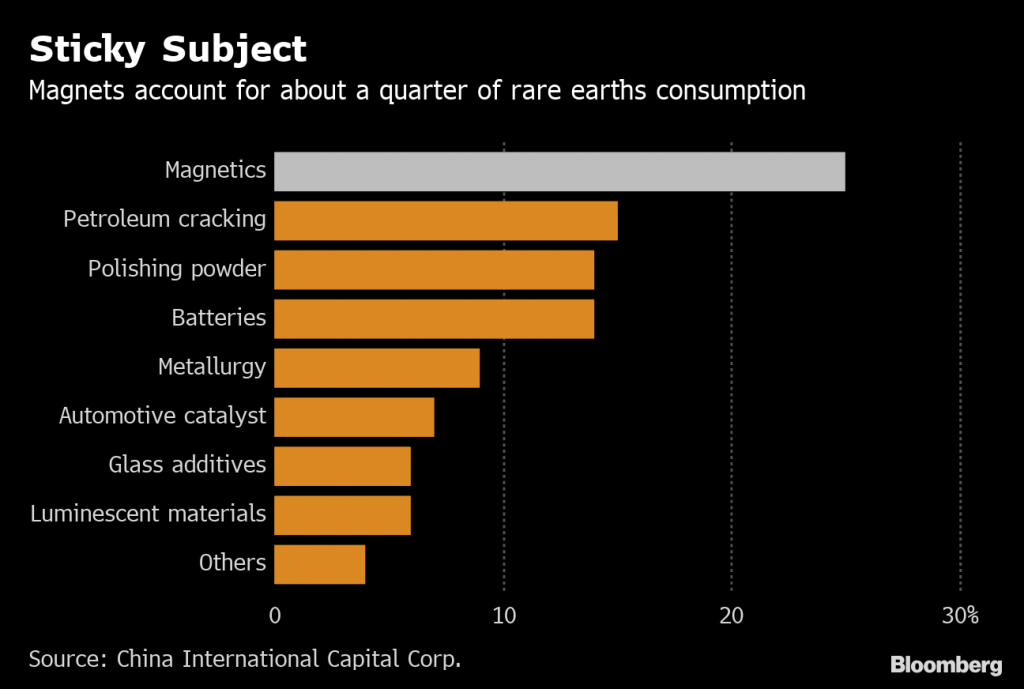Chinese rare earth magnet producer to expand as EV demand booms

Industries around the world producing a host of electrical appliances will increasingly be forced to compete for rare-earth magnets with China’s burgeoning market for new energy vehicles, according to one Beijing-based magnet producer.
Jingci Material Science Co. is expanding its production capacity of neodymium-iron-boron — NdFeB for short — magnet material to 8,000 tons by the end of the year, from about 6,500 tons currently, sales director Qiu Yi said on the sidelines of an industry conference in Shanghai last week. The eventual goal is to raise capacity to 12,000 tons, he said, without giving a time-frame.

The importance of rare earths, ubiquitous across a range of applications from consumer goods to military gear, has been thrust into the spotlight in recent weeks as China mulls whether to use its position as the world’s dominant supplier as a counter in its trade war with Washington. The minerals biggest usage is in permanent magnets, which include the NdFeB variety, and which are found in everything from phones to computers to cars.
China, also the largest permanent magnet maker, produced about 160,000 tons of NdFeB last year, from total capacity of around 300,000 tons, Qiu said. China accounts for about 80% of the $10 billion-plus global market for NdFeB magnets, according to financial results published in April by Ningbo Yunsheng Co., another producer.
The nation is also home to the world’s biggest market for electric vehicles, and demand for NdFeB magnets from EVs could rise to 12,250 tons in 2022 and then 34,300 tons in 2025, from 5,600 tons last year, said Qiu, citing company estimates.
NdFeB magnets contain around 30% neodymium and praseodymium, or NdPr, two of the 17 rare earth elements that are actually quite abundant in the earth’s crust although concentrations conducive to mining are are less common than other ores.
More News
{{ commodity.name }}
{{ post.title }}
{{ post.date }}




Comments